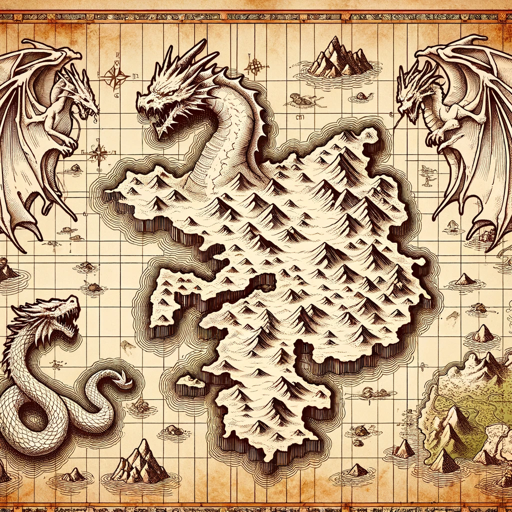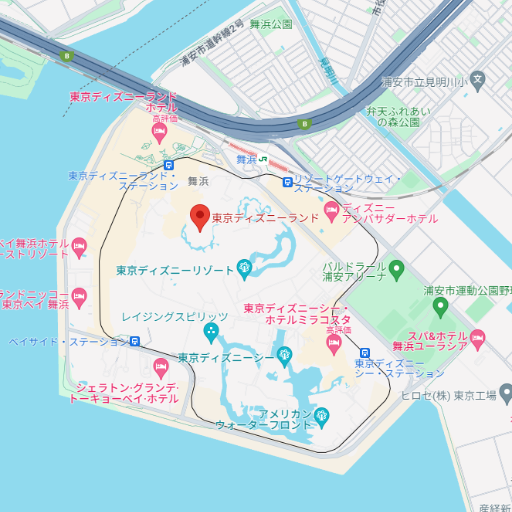Topical Map Generator-tool for generating content maps.
AI-powered topical map creation tool.
Map out the key topics in digital marketing.
Create a topical map for WordPress Theme Development.
Generate a map for the key concepts in AI.
Describe the main areas in cold emailing.
Related Tools
Load More
Topical Authority For SEO GPT Generator
This Custom ChatGPT Assistant create a topic map of any topic, allowing you to build topic authority and increase your Organic Traffic using ChatGPT SEO Check out Income Stream Surfers on YouTube

SEO Topical Map Maker
SEO topical map creator.

Geo+
Your assistant for quick geospatial analysis

Game Map Cartographer
TTRPG Battle Map Illustrator

Mythical Map Maker
Crafts lore-rich descriptions and visual maps of fictional lands.

Map Maker
あなたの指定した地点や住所の周辺地図を描きます
20.0 / 5 (200 votes)
Introduction to Topical Map Generator
The Topical Map Generator is designed to help users create structured, SEO-optimized content plans that organize topics around a specific niche. Its primary function is to build a comprehensive map of topics, subtopics, and related keywords that provide a clear path for content creation. This is particularly useful for SEO strategists, content creators, and website owners who want to optimize their online presence. By laying out a map of interconnected topics, the tool assists in forming a content hierarchy that ensures broad coverage of a niche while targeting relevant search queries. For example, if a user is running a blog on 'vegan nutrition,' the Topical Map Generator might organize content ideas around core themes like 'plant-based protein sources,' 'vitamin deficiencies in vegan diets,' and 'meal planning.' Each of these themes would further break down into subtopics, such as specific vitamins, recipes, or common myths. This approach ensures thorough content coverage while aligning with search engine algorithms that prioritize well-structured, topic-rich websites.

Core Functions of Topical Map Generator
Generating Hierarchical Topic Maps
Example
A digital marketing agency looking to cover a niche like 'influencer marketing strategies' would input the niche, and the tool would generate a topical map that includes main topics like 'social media platforms,' 'types of influencers,' 'content creation tips,' and 'measuring ROI.' Subtopics could include specific platforms like 'Instagram marketing' or strategies like 'micro vs. macro influencers.'
Scenario
This function is ideal for planning out a full content strategy, as it breaks down broad niches into manageable and relevant subtopics, ensuring complete coverage and topic authority.
Keyword Integration for SEO
Example
A health and wellness blogger wants to rank for the keyword 'yoga for beginners.' The Topical Map Generator could help by generating keyword-based topics such as 'basic yoga poses,' 'how to start yoga at home,' 'yoga breathing techniques,' and 'common mistakes in beginner yoga.' Each of these topics would include suggestions for target keywords.
Scenario
This function is crucial for anyone looking to optimize their content for search engines. It ensures that not only are topics well-organized but also that they include high-performing and relevant keywords, helping drive organic traffic.
Content Gap Analysis
Example
An e-commerce site selling outdoor gear might already have content on 'camping tents' but could be missing key subtopics like 'best tents for cold weather' or 'how to maintain your tent.' The tool would highlight these missing subtopics in the generated topical map.
Scenario
Content gap analysis is essential for businesses and content creators who already have established content but need to identify missing areas to improve topic authority and fill gaps that competitors may be covering.
Ideal Users of Topical Map Generator
SEO Specialists and Digital Marketers
SEO professionals benefit from the Topical Map Generator because it provides a clear structure for content development, ensuring that no important subtopics or keywords are overlooked. By creating topical clusters that align with search intent, the tool helps SEO experts enhance a website's topic authority and search rankings. Digital marketers can use it to plan long-term content strategies that focus on increasing organic traffic and user engagement.
Content Creators and Bloggers
For content creators, especially bloggers, the Topical Map Generator serves as a tool to keep their content organized and diverse. It prevents them from focusing too narrowly on a single aspect of their niche while providing fresh ideas for related content. This helps maintain reader interest and ensures that content covers a broad range of search queries, improving the site's visibility and relevance.

How to Use Topical Map Generator
Step 1
Visit aichatonline.org for a free trial without login, also no need for ChatGPT Plus.
Step 2
Choose your niche or topic. You can either select a broad subject area or specify a particular industry or keyword list, depending on the depth of content you want.
Step 3
Provide relevant keywords to guide the generator. These keywords help the tool build a comprehensive topical map with specific subtopics.
Step 4
Review the generated map, which includes a structured layout of topics and subtopics that can be used for content creation, navigation, or SEO optimization.
Step 5
Refine the map by adding, removing, or editing nodes. Use it to guide your content strategy or export it for further use in SEO tools or content management systems.
Try other advanced and practical GPTs
年賀状GPT
AI-Powered New Year's Cards

Front-end expert
AI-powered front-end development guidance

Python Teacher
AI-powered Python learning, simplified.

Signature Designer
AI-crafted signatures for personal brands

Gary Vee Chat
AI-powered insights for social media success.

DALL-AI Generative Ai Image Creation
AI-powered image creation made easy.

Crypto Wizard
AI-powered insights for crypto and blockchain

Unity Coder
Optimize and streamline your Unity code with AI.

PowerPoint-Präsentation erstellen lassen
AI-powered presentations made easy

Suno ai - /chirp - Music Prompt maker
AI-Powered Music and Art Creation

Values Discovery
AI-powered personalized values discovery

Compare Documents
AI-powered document comparison tool
- E-commerce
- Content Planning
- SEO Strategy
- Research Organization
- Blog Structure
Topical Map Generator Q&A
What is the Topical Map Generator used for?
The Topical Map Generator is designed to help users structure their content by creating a hierarchical map of topics and subtopics. It’s widely used for SEO purposes, content strategy planning, and improving site navigation by ensuring all relevant topics are covered.
Can I use specific keywords to guide the topical map creation?
Yes, you can provide a set of keywords that the generator will use to build a topical map. This allows for more precise targeting and ensures the map is tailored to your specific content goals or SEO needs.
Is it necessary to have technical or SEO expertise to use the tool?
No, the tool is designed to be user-friendly, and you don't need to have prior knowledge of SEO or content strategy. It provides step-by-step guidance to help you generate a topical map easily.
How can I use the generated map for SEO?
The generated topical map helps in identifying gaps in your content, ensuring topic coverage, and aligning with keyword clusters. This can improve internal linking, search engine visibility, and user engagement by creating a logical and comprehensive content structure.
What are some common use cases for the Topical Map Generator?
Common use cases include planning content for websites, blogs, or academic papers, structuring e-commerce category pages, enhancing site navigation, and optimizing SEO for large-scale content strategies.